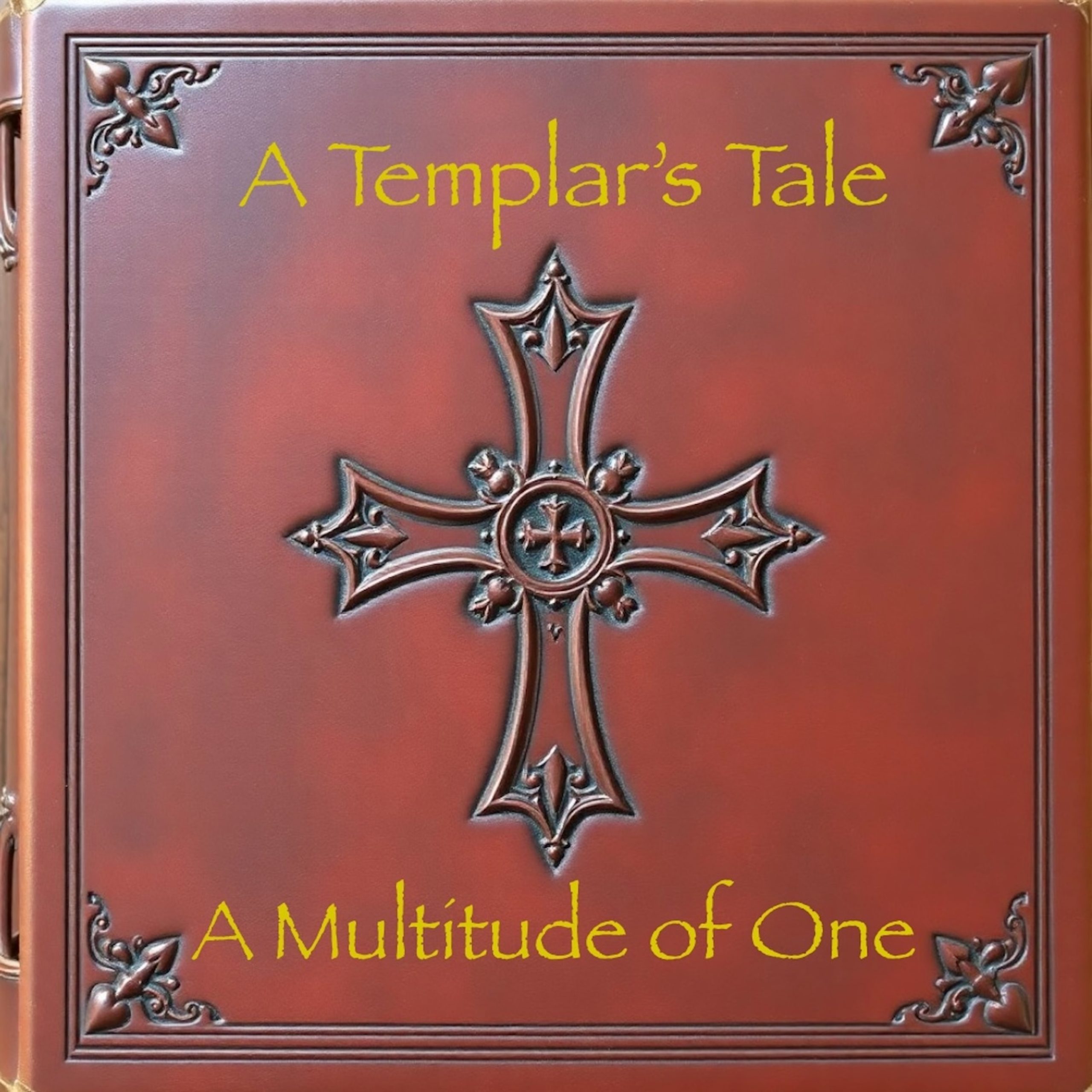
Colin Powell is not the former Chief of Staff of the USA but an extremely gifted musician from Salford in the UK, whom I discovered with Nova Cascade, a band I am particularly fond of. Since childhood, the Prog Rogue has always been a keen devourer of history (particularly European and especially French history, as my degree is a ‘Baccalauréat -lettres’), hence a huge fan of medieval, Middle Ages and Renaissance music as well as folklore. Colin has created a whopping story, though fictitious, and I can vouch for its many verifiable timelines as well as the protagonists, drawn from the entire Templar and Crusades sagas, the city of Acre (which I have visited in 1980), Saladin, Jacques de Molay, Pope Clément and King Philippe IV of France. The main hero, Sir Geoffroy de Beaumont, is a finely researched figment of Colin’s mellifluous imagination. This is a concept album that will require full and undivided attention, just like in the glory days of prog when epic releases sent the listener into another world. A dozen tracks spread over 75 minutes of adventurous conviction, so saddle up, lower the visor, grasp the flails and let the galloping charge begin.
From the opening grandiloquent ouverture, expertly carved by a fluid electric guitar line, “The Tale Begins”, a decidedly cinematographic crusade that will eventually lead to the Holy Land and the deliverance of Jerusalem from the Muslim invaders. In a rather peculiar twist of history, perennial European foes suddenly united in forming the first crusade, conceived by Pope Urban II and the Byzantine emperor Alexios I in 1099. Godefroy de Bouillon, Beaudoin de Boulogne, Peter the Hermit, Robert Curthose, Robert of Flanders and many more eventually overcame the Seljuk Empire’s hold on the sacred city and its continued expansion as it also stalled in Spain. This is also the future starting point for the Templars ascension to supreme military might from 1118 to its downfall in 1312. This is the background story that is developed by Colin throughout the tracks, and since the release comes with a 44-page booklet, the suggestion is to read along as you listen attentively to the sounds and emphasis on the lyrical content.
The second track “The Dawn of the Templars” displays an uncanny appreciation of storytelling and sonic pace, laden with convincing final choral sequences that seek to astound, as well as melodic line that gushes with sensibility. The long march towards the holy city is explicitly depicted with its somber overtones, the cause deemed just, and the determination laid in ‘faith as compass’. Tingling acoustic guitars strum with spirit on “Footsteps to Jerusalem”, the choir mellotron burning brightly once again as the volunteer army leave their homes behind, where chevaliers, constables and gentry bond in fortitude, sharing muscadine, pottage and civet as they venture towards Constantinople, and eventually to the gates of Zion.
Sprinkled with lyrical battleaxe guitar solos, “The Sacred Oath” provides the hallowed sheen that anoints their cause, the choir in heavenly embrace, emboldening the eventual carnage that only “An Unholy War” could possibly generate. A clash of cultures, and of beliefs, each side believing in the supremacy of their God, even though there is, according to their scriptures, only ONE (presumably the same with differing vocabulary). Sandwiched between these luminary tracks, my highlight piece is “Stone and Gold”, a testament to the logistical needs and the benefits of conquest, building Montségur and le Krak des Chevaliers (among many other fortresses along the way) as well as amassing colossal bounties which will fund the Templars legacy and ultimate downfall. Throughout these three pieces, the sublime electric guitar work remains in utter harmony with the story.
The core of this splendid album is to be discovered in the 3-part “The Battle of Acre”, nearly 17 minutes of epic siege between Saladin and Guy of Jerusalem, spanning 2 years (1189-1191) which formed part of the third crusade. Acre (currently Akko) which I have visited in 1980, still has a sense of timeless eternity, a mixed city with a large Arab population and is a place that must be seen to be believed. Throughout the arrangement, the narration explains the battlefield synopsis, where warriors, mamelukes, vassals, squires, crossbow archers, Saracens and Templars, Saladin and King Richard the Lionhearted, naval battles off the coast, malaria and epidemic illnesses, Turks slaughtering Christians and Templars butchering Muslims, in a volatile tit-for-tat blood-letting insanity that was drenched in apostate vengeance. Colin evokes all these sentiments on glittering piano sections, whilst channeling orchestrations, slippery guitar leads and marshalling drum barrages to elevate the scope of the tragic narrative. It’s never boring or plodding in any way, as the persistent battles are fickle and weave from victor to vanquished. In the end, a perfect example of historical prog at its finest.
The truly fascinating “The Grand Master” recounts the rise and fall of the Templars and its final leader Jacques de Molay, targeted by the Holy Church as a potential rival to power, in view of the immense riches amassed by the order. An inquisition and subsequent massacre of repentance or death had rekindled the gruesome practice of torching by fire of the unremorseful rebels and de Molay was burned at the stake, and as the flames licked his face, he cursed both King Philippe and Pope Clément, who would both eventually die within a year and one day. Karma can be a bitch.
Both “The 13th Day” and “The Legacy of the Templars” are extended compositions that act as a chronological epilogue, as the Templar order was dissolved for evermore (though some experts claim the Masons took over). Befitting such a massive period in the annals of our past, the symphonics really kick in, Colin adding sweeping choir keyboards to fulfill the narrative, remindful of Al Stewart’s more historical opuses.
Thoroughly enjoyable voyage back into the ages, when stories were told with no regard to ten second sound bites and consumer gluttony without substance. If you are able to watch a full-length movie, why not imagine in your own mind, music that is able to tell a tale with intimate precision and sonic seduction?
Once again, I am proud to have been introduced to this album via my esteemed colleague in arms Lazland, whose mercurial review enchanted the historical rogue in me.
5 Simon Templars








